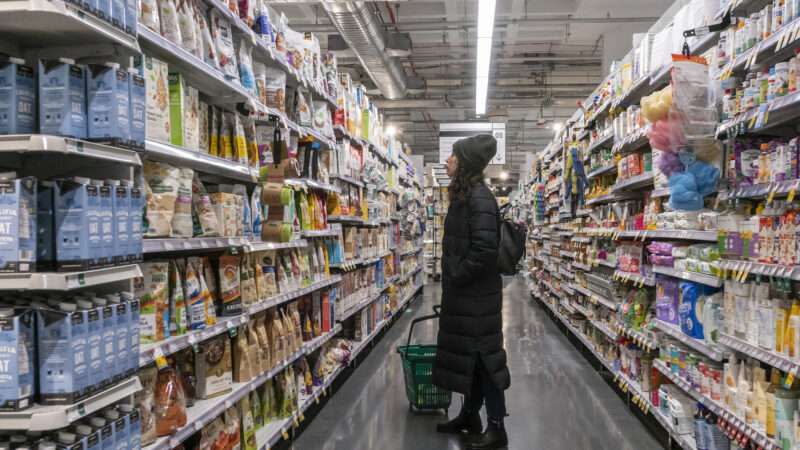Inflation Isn't Imaginary

What we know about the inflation report: A new Consumer Price Index report was released this morning.
"Overall inflation is expected to hold steady at 3.1 percent on an annual basis. That's down notably from a 9.1 percent high in 2022, but still quicker than the roughly 2 percent that was normal before the 2020 pandemic," reports The New York Times. "After stripping out volatile food and fuel costs for a better sense of the underlying trend, inflation is expected to moderate to 3.7 percent, down from 3.9 percent in January compared with a year earlier."
"The core consumer price index, excluding food and energy, probably rose 0.3% in February," according to Bloomberg's economists Anna Wong and Stuart Paul. Though the news is not bad, per se, "we don't expect the February CPI report to provide clear enough evidence of disinflation to boost the Fed's confidence to cut rates," report Wong and Paul.
Of course, the month-over-month jump matters for people's perceptions of inflation, and the mixed findings in the latest report don't mean people feel financially recovered: part of the Federal Reserve's approach was jacking up the interest rate—to 5.3 percent, the highest rate since the 2007-'08 recession—which means housing transactions have slowed. It's expensive for people to borrow right now, and that has massive economic effects, including making people feel stuck in their existing housing situations since it's an expensive time to buy.
"Shelter inflation is not cooling as quickly as hoped," notes the Times, and "various kinds of insurance—including car, medical and property protection—are costing more."
Everything is not, in fact, peachy: Pollsters have been left scratching their heads wondering why consumer sentiment does not appear to be particularly positive, even though a recession has been somewhat narrowly avoided. I wonder if it's at least in part because people sense political dishonesty about how we got into this mess in the first place.
"Democrats were willing to tolerate some inflation when they passed the American Rescue Plan in 2021—perhaps underestimating or forgetting how much people hate rising prices—but they also argue that this particular bout was mostly caused by production and shipping delays, as well as unpredictable shifts in what people were spending money on," notes a lengthy Politico feature from last month. "The [Biden] administration has also put blame on companies for taking advantage of the moment. White House economic adviser Lael Brainard told reporters…that consumer brands and grocery store chains need to bring down their pricing from pandemic-era levels."
It seems like that potent mixture of stubborn inflation, elevated interest rates, and political blameshifting leads to people feeling bad about the economy, even if things are trending in the right direction.
Scenes from New York: A must-read piece, "From China to New York, by Way of the Southern Border," from The New York Times.
QUICK HITS
"Sitting among the traveling press on campaigns of people like John Kerry and Barack Obama, I heard how campaign reporters talked, how they thought of their jobs," writes Matt Taibbi over at Racket News. "They were fiercely protective of their gatekeeping role, which gave them enormous power. If reporters didn't think a candidate was good enough for them—if he was too 'kooky' like Ron Paul, too 'elfin' like Dennis Kucinich, or too 'lazy' as just a handful of influential reporters decided about Fred Thompson—the 'Boys on the Bus' would snort and trade cutting remarks in riffing sessions before and after events. Campaigns would be elevated or die in these moments. I thought it was crazy, and said so in print, which made me a pariah, and I never thought it would end. Then Trump came along and destroyed the whole system with one stroke, getting elected in spite of the blunt disapproval of media."
"In what appears to be the first criminal case of its kind, two teenage boys were charged under a 2022 Florida law for allegedly creating AI-generated [nude] images depicting middle school classmates," reports Wired.
"Former President Trump vowed Monday to 'free' Jan. 6 rioters as one of his first acts if he's elected for a second term in November," reports Axios.
Inside the politics of raw milk, which is now trad- or conservative-coded.
Checking in on the Germans:
just found out about this German guy who travels around the country on his bicycle reporting parking violations as a hobby (he does not get paid to do this).
Germans yearn to live a very specific kind of way. pic.twitter.com/GrZaV6lYdt
— pagliacci the hated ???? (@Slatzism) March 10, 2024
¡AFUERA!
Milei just sacked the secretary of labor on live TV for not reviewing the decree by Cristina that increased executive branch salaries by default (which Milei reverted yesterday)
pic.twitter.com/Ijaeufhav9— BowTiedMara (@BowTiedMara) March 11, 2024
This piece, "Freedom of Sex," in New York magazine, is described as "the moral case for letting trans kids change their bodies." It's getting a lot of airtime, but I find it to be crucially flawed (as do others).
lol:
I suspect this is how the anxious climate folks feel generally
Except obviously my problem is actually real and important, unlike theirs
— pjeffa (????,????) (@jeff82874662) March 8, 2024
The post Inflation Isn't Imaginary appeared first on Reason.com.

